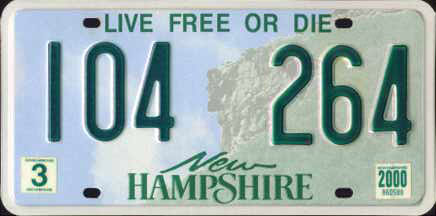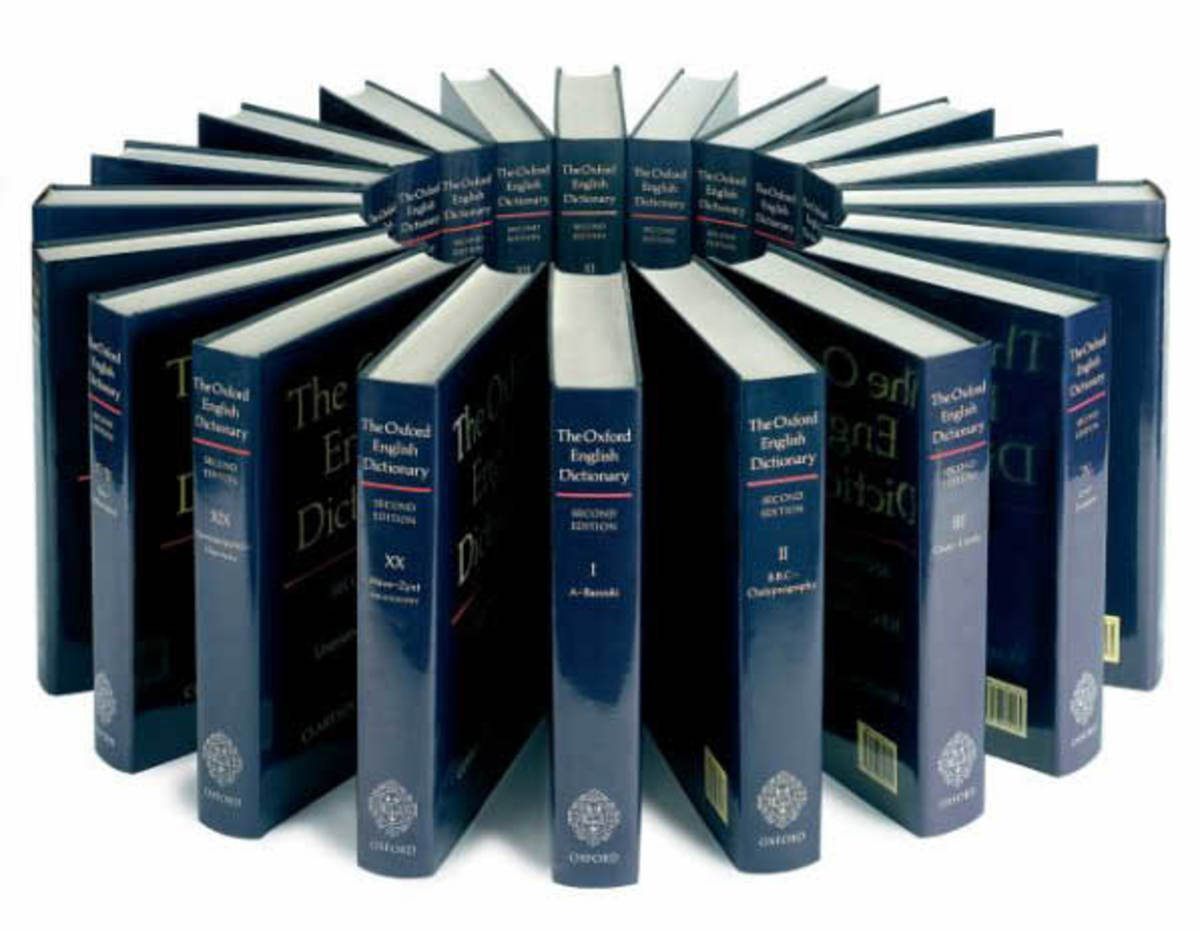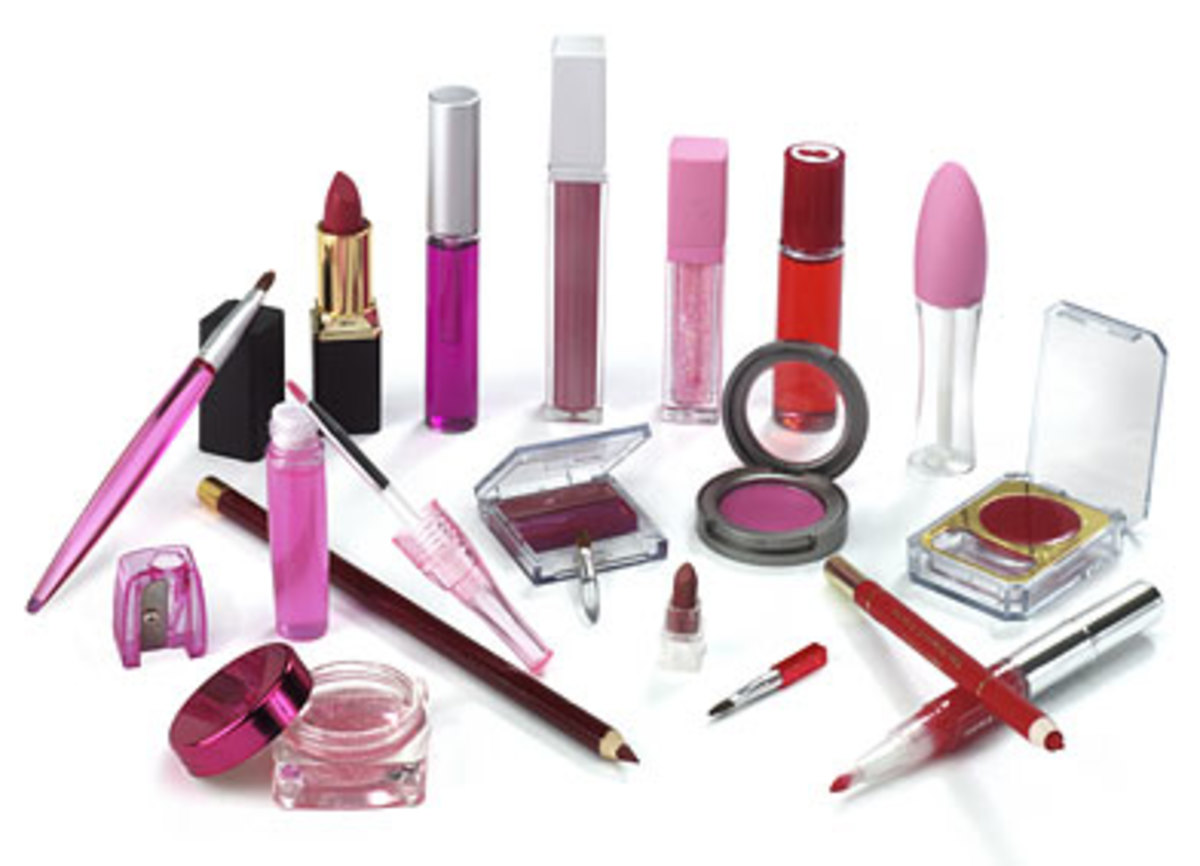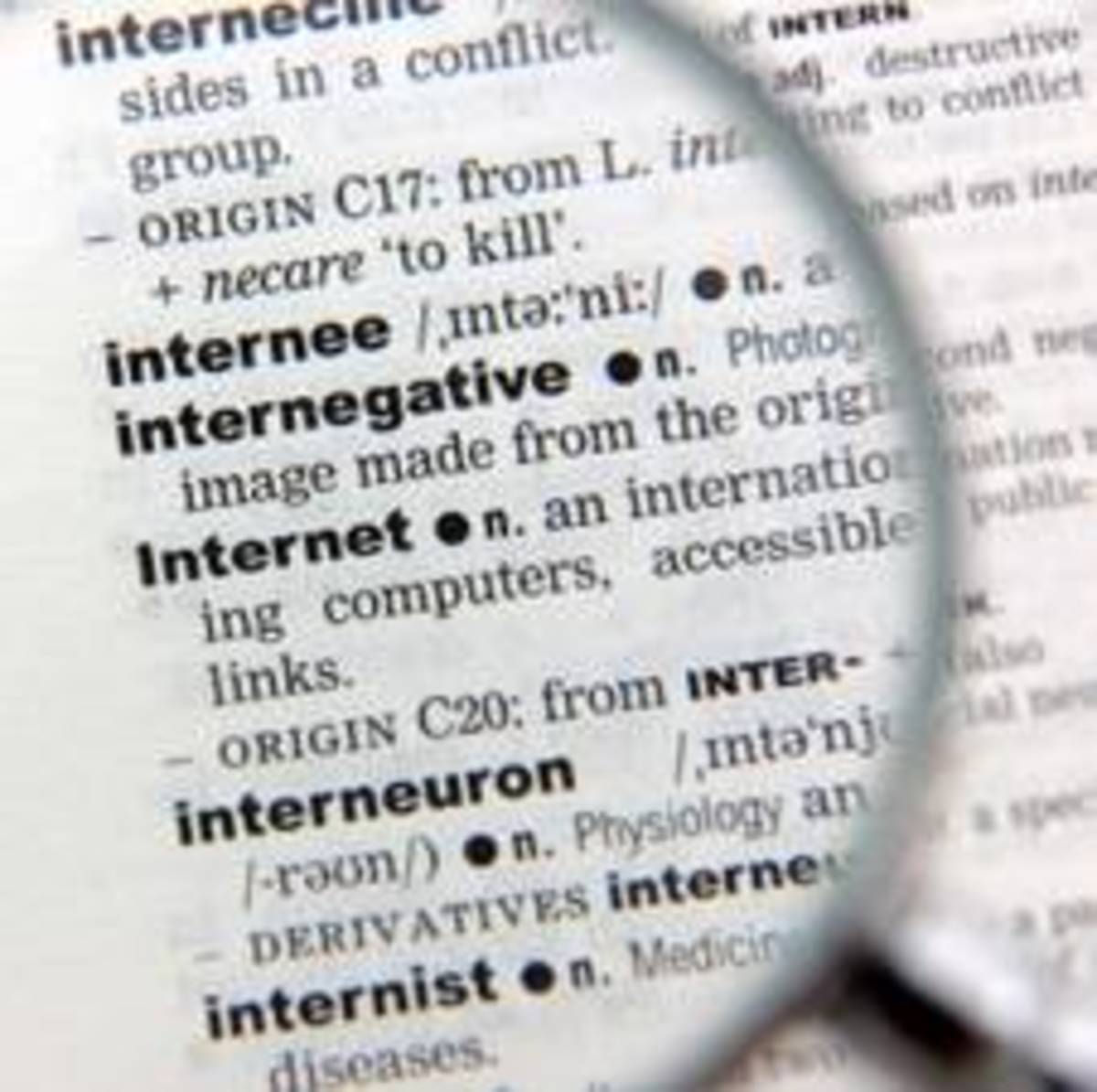How Today’s Adults Make Intellectualism a Four Letter Word

Do you use proper English and a good vocabulary?
Lowering the Bar
“You shouldn’t use big words in your speech.”
The words echoed in my head like a soprano wailing in an underground cavern. I had just finished a speech based upon a recent hub I’d published regarding my lifelong love affair with coffee and this speech was a target for others as an exercise for giving constructive criticism to the speaker. All the critiques I’d gotten were more or less positive as the subject matter was very dear to my heart. I’d known going into the speech that my busy professional life had gotten the better of me this week, leaving no time for memorization or rehearsal, and I knew that today’s speech would not be my very best effort.
Having no alternative, I read my notes aloud. I didn’t want to; but, given the day I had, my mind was almost as sharp as sun heated tapioca. So I knew the execution of my speech was going to be good fodder for an exercise in speech judging.
What I did not expect was a comment about my vocabulary. Granted, I like to speak with maximum verbosity every once in a while. However, I think those eight words said more about the critic rather than my subject matter.
“You used some very long words that may not communicate well with your audience. The words ‘expunge’, ‘modicum’, ‘derivative’, and ‘commodity’ may confuse some of them.” She continued. I’m pretty good at taking criticism but, at this point, I had already lost my patience a few times during the work day. I was just too tired to let my own wrath take me again.
Instead, I just looked at her and smiled. My face could have easily been that of a stoner at a movie theater. My first thoughts were that I got good feedback from three of the four critics and I could dismiss this commentary as the ramblings of someone at the tail end of the bell curve.
Unfortunately my second thoughts were a bit louder and started their spiteful little internal tirade about writing my next speech with peppered words like “obsequious”, “nonplussed”, “chagrinned”, “pomposity” and “infantile”.
If I was going to start using some ten dollar words, now would be the time for me to pull out my credit card.
I smiled and kept my silence. After all, her intent was to be supportive. It wasn’t my fault that her vocabulary was not up to snuff. And when I thought about it, I couldn’t avoid using the word “commodity” as I was talking about that part of the stock market. Unless there were some ethereal way of mashing a dictionary into her skull, there would be no way to transmogrify her intellect into that of an educated conversationalist.
It was at that point that I realized why I was having an issue with this. In her own way, she testified that most people were stupid and they really don’t want to think anymore. While I knew there were a lot of stupid people out there, I really hadn’t given up on my ilk just yet.
Using Your Words
Yes, there’s a whole lot of stupid out there.
There is a very popular conspiracy theory that the government is trying to make people stupid. It began with the fluoridation of our water and adding mercury in our flu shots. These two chemicals have been linked to ADHD. It has also been said that the only thing that’s worse than having mercury in your system is having plutonium in it.
I, myself, have ADHD. It makes me impulsive and inattentive at times. Having ADHD also lets me hyper focus which is a handy skill to have when you’re reading or playing video games. Thom Hartmann had the evolutionary theory that the early human hunters in civilization were ADHD people as their minds constantly scanned for more information about their surroundings
But I digress.
Having a complex vocabulary is a good thing. Although, I will admit keeping things simple for maximum communication does have some merit when it is vital to be understood. For example, it’s always a good idea to come directly to the point in plain simple words when you’re around an active bomb. Saying things like, “extinguish that improvisational explosive device post haste” can cost you your life when all you need to say is “get rid of that bomb”.
Yes, speaking clearly and simply have their place in this world.
But then again, we have words. Words coming from a person can either tag them as a scholar, a genius, a poet, or a force to be reckoned with. At the same time, words spoken inappropriately and without eloquence can mark an individual as a moron, a hack, or a “thickie”.
Let’s take the word “axe” for example. If you use this word to describe a tool that is useful in cutting wood or an effective weapon against the undead, you are using the word correctly. If you use this word to promote an interrogative statement then you’re a freaking moron because you meant to use the word “ask”.
I’ll “ask” you a question. I’ll never “axe” you a question.
Instant Knowledge Versus Permanent Knowledge
Do you want to watch teenagers lose their minds? Take their smartphones away from them.
The internet is a wonderful and dangerous thing. With our smartphones that access the internet, we can have almost any bit of information that we want - provided that we know where to look. While we have information at our fingertips, there's a lot of misinformation out there.
I am part of probably one of the last generations out there that had to memorize things in school. We didn't use calculators. We had to memorize multiplication tables, we needed to know how to spell words and not rely on a spell check system, and we needed to know the capitals of the US and Europe. Given that few high school students can tell you what the US capital is or the preamble of the US Constitution, I think we as a nation are in a bit of trouble.
What needs to be understood is that things on the Internet are transitory. The data on your Kindle, on your iPad, or iPhone can be corrupted. What people need to have is knowledge in their ROM not their RAM. We need to actually know things.
That's what intelligence is - knowing things. These things are words, methodologies, facts, and figures. Knowing these things is knowledge - and knowledge is power. The more knowledge about a subject makes you smart or an intellectual.

Final Words
Speaking with eloquence in an appropriate setting says a lot about a person. You don’t need to do it all the time, however, if you’re on a job interview using a good ten dollar word can pay high dividends.
When I write these articles I want to do two things: 1) I want people to think and 2) I want people to learn. I’m not a big fan of dumbing down my work for people who don’t have the motivation to go to a dictionary or, at the very least, Google the word.
At the same time, when I want to really be understood and when the message is really important, I’ll keep things simple. That is the rule when you write for a business – KISS: Keep It Simple, Stupid.
I believe that George Carlin had it right when he said that education in this country is really terrible. During the Bush Jr. years, when he started with “Head Start” and then went to “No Child Left Behind” – someone was losing ground.
Back in the 18th and 19th centuries, people got their entertainment from reading books. That was the media of the day. You needed to be literate. It was the difference between an educated man who could read and write versus being a fool. Granted, education was not as plentiful as it is today and reading could be considered a high commodity. Me? I read comic books.
Today, we watch TV – and not even good TV, either. We’re watching Jackass, The Biggest Loser, Survivor, Big Brother, or some other piece of reality TV garbage. How many of these programs actually improve your vocabulary or challenge that big gray organ between your ears and behind your eyes.
We do still have books. Everyone should read a good classic. The late Stephen Covey, author of The Seven Habits of Highly Effective People, urged his readers that they should read a book a month and then try to read a book a week. You should try to challenge yourself and read widely and deeply. Then you should learn to write. What exercise is to the body, reading is to the mind – but writing is the distillation of concentrating your thoughts so that you can be understood by other people by conveying an exact concept and communicating it empathically.
Don’t ever dumb down your words. When you feel a word is appropriate, use it. You’ll know the character of a person when they ask you with true curiosity what a word means.
I remember a time when a man I respected asked me what “irony” meant. I gave him three answers. My first answer was facetious – “It’s like ‘goldy’, ‘silvery’, and ‘bronzy’.” My second answer was an illustration, “Irony is being in a New Hampshire prison making license plates.” My third answer was the best approximation I could make of the definition – “humor based on an opposite.”
Speak to your audience as people you respect – not people you need to patronize.
© 2013 Christopher Peruzzi








